The Politburo has just issued Resolution No. 68-NQ/TW on private economic development, identifying this as the most important driving force of the national economy.
Along with the state economy and collective economy, the private economy plays a pivotal role in building an independent, autonomous, self-reliant, and self-reliant economy associated with deep, substantive, and effective international integration, helping the country escape the risk of falling behind and rise up to prosperous development.
The resolution also states that by 2030, the economy will strive to have 2 million businesses operating, 20 businesses operating per thousand people. There will be at least 20 large businesses participating in the global value chain.
In particular, the average growth rate of the private economy is about 10 - 12%/year, higher than the growth rate of the economy; contributing about 55 - 58% of GDP and about 35 - 40% of total state budget revenue...
By 2045, Vietnam's private economy will develop rapidly, strongly, sustainably, proactively participate in the global production and supply chain; and have high competitiveness in the region and internationally.
“By 2045, strive to have at least 3 million businesses operating in the economy; contributing over 60% of GDP” - the Politburo Resolution clearly stated.
Abolish business license fees, exempt corporate income tax
To achieve the above goal, the Politburo clearly stated many tasks and solutions. The first of which is to innovate thinking, reach high consensus on perception and action, arouse national belief and aspirations, create new impetus and new momentum to develop the private economy.
“The State creates, serves, and supports the private economy to develop rapidly and sustainably, without administrative intervention in production and business activities contrary to market principles; builds an open, friendly, cooperative, and honest relationship between the government and businesses to serve and create development” - the Politburo stated.
In particular, the Resolution requires promoting reform, perfecting and improving the quality of institutions and policies, effectively ensuring and protecting ownership rights, property rights, freedom of business, and the right to fair competition of the private economy, and ensuring contract enforcement of the private economy.
In particular, the Politburo noted minimizing intervention and eliminating administrative barriers, the "ask - give" mechanism, and the "if you can't manage it, ban it" mindset. People and businesses are free to do business in sectors that are not prohibited by law. The right to do business can only be restricted for reasons of national defense, security, social order and safety, social ethics, the environment and public health and must be stipulated in the law...
“In 2025, complete the review and elimination of unnecessary business conditions, overlapping and inappropriate regulations that hinder the development of private enterprises; cut at least 30% of administrative procedure processing time, at least 30% of legal compliance costs, at least 30% of business conditions and continue to cut sharply in the following years,” the resolution stated.
Notably, the Politburo requested to amend the Bankruptcy Law, shorten the time for processing legal procedures, expand the scope of application of simplified bankruptcy sanctions; promote the application of electronic litigation procedures, and reform the asset handling mechanism.
At the same time, establish a mechanism to evaluate and provide feedback on barriers and obstacles in production and business activities. Overcome the inconsistency in policy implementation between the central and local levels, between ministries, branches and between localities....
In addition, the Politburo requested to review and improve tax, fee and charge policies towards ensuring fair treatment among economic sectors, reducing tax rates, expanding tax bases, especially electronic tax collection initiated from cash registers; strictly prohibiting the abuse of administrative decisions and local protectionism of sectors and localities.
“Strictly handle acts that restrict competition, abuse dominant position, monopoly position and unfair competition” - Resolution of the Politburo requires.
In particular, the Politburo noted the need to complete the legal framework for new economic models, technology-based businesses and digital platforms, especially financial technology, artificial intelligence, virtual assets, virtual currencies, crypto assets, cryptocurrencies, e-commerce, etc. There is a testing mechanism for new industries and fields on the basis of post-audit, in accordance with international practices.
“Strictly handle acts of corruption, personal gain, and harassment by officials and civil servants; at the same time, have a mechanism to exempt responsibility for cases that have fully implemented relevant procedures and regulations, and have not taken personal advantage in the process of performing tasks, but have suffered damage due to objective risks” - the Politburo requested.
In addition, the Politburo also directed to abolish business license fees; exempt corporate income tax for small and medium enterprises in the first 3 years of establishment. Along with that, allocate sufficient resources from the central and local budgets for programs and policies to support enterprises, combined with mobilizing resources from investment funds of enterprises, business associations, industries, research institutes, universities, etc.
Inspect and check once a year for businesses
Another important content, the Politburo requires ensuring and effectively protecting ownership rights, freedom of business, property rights, equal competition rights and ensuring contract enforcement of the private economy. In particular, there is a specific mechanism to handle projects and contracts that have been pending for many years, causing loss and waste of social resources, hindering the development of private enterprises, in parallel with determining the roles and responsibilities of relevant agencies, organizations, units and individuals according to the provisions of law.
"End the situation where state agencies and state-owned enterprises are slow to fulfill payment obligations under contracts signed with private enterprises" - the resolution stated.
In particular, the Politburo requested to end the situation of overlapping, duplicative, prolonged, and unnecessary inspections and examinations; ensure the principle of only conducting inspections and examinations once a year for enterprises, except in cases where there is clear evidence of violations by enterprises.
“Strictly handle acts of abusing inspection and examination to harass and cause difficulties for businesses” - The Politburo noted and proposed to strongly apply digital transformation in inspection, examination and auditing activities. Deploy online inspection and examination, prioritize remote inspection and examination based on electronic data, reduce direct inspection and examination.
In particular, exemption from physical inspection for businesses that comply well with legal regulations.
Priority is given to civil, economic and administrative measures.
In addition, the Politburo also noted compliance with the principle of clearly distinguishing criminal, administrative and civil responsibilities; between legal entities and individuals in handling violations.
Accordingly, the Politburo requested to amend regulations on criminal law, civil law, criminal procedure, and civil procedure to ensure the principle when handling violations and civil and economic cases, giving priority to applying civil, economic, and administrative measures first, allowing businesses and entrepreneurs to proactively remedy violations and damages.
“In cases where the practical application of the law may lead to criminal proceedings or no criminal proceedings, criminal proceedings must absolutely not be applied. In cases where criminal proceedings are required, measures to remedy economic consequences must be prioritized first and serve as an important basis for considering subsequent measures,” the Politburo emphasized, noting that legal provisions should not be retroactively applied to disadvantage businesses.
For cases lacking evidence or unclear evidence, the Politburo requires early conclusions to avoid affecting the reputation and normal production and business activities of enterprises and entrepreneurs.
“Ensure the principle of presumption of innocence during the investigation and trial of cases” - the resolution stated, and at the same time required ensuring that the sealing, temporary seizure, and freezing of assets related to the case must comply with the correct authority, order, procedures, and scope, and must not infringe upon the rights and legitimate interests of individuals and organizations; ensuring that the value of the sealing, seizure, temporary seizure, and freezing corresponds to the expected consequences of damage in the case.
In particular, it is necessary to clearly distinguish between legally formed assets and assets obtained from illegal acts and other assets related to the case; between the assets, rights and obligations of the enterprise and the individual managers in the enterprise.
The Politburo stated the principle of allowing the reasonable use of necessary measures to ensure the value of assets related to the case, minimize the impact of the investigation on production and business activities, after reaching a consensus with the prosecution agencies and without affecting the investigation activities.
In addition, in the recently issued Resolution, the Politburo also requested to facilitate the private economy in accessing resources of land, capital, and high-quality human resources. Specifically, increasing opportunities for the private economy to access land and production and business premises; promoting and diversifying capital sources for the private economy, along with solutions to improve the quality of human resources for the private economy...
(According to plo.vn)
Source: http://baovinhphuc.com.vn/Multimedia/Images/Id/127748/Nghi-quyet-68-Bo-Chinh-tri-Mien-tru-trach-nhiem-can-bo-khong-tu-loi-trong-qua-trinh-thuc-hien-nhiem-vu


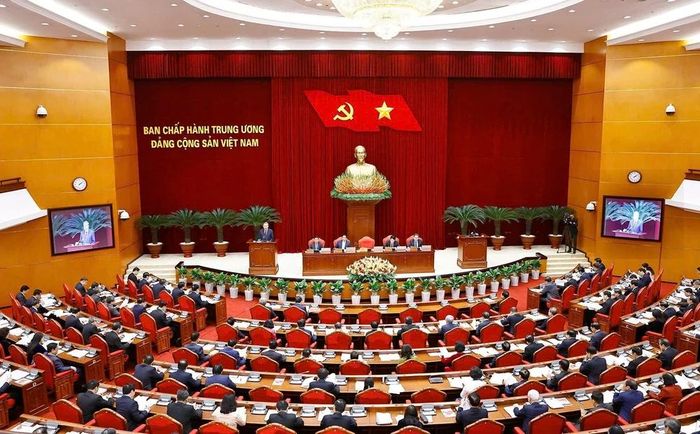


![[Photo] President Luong Cuong attends the National Ceremony to honor Uncle Ho's Good Children](https://vphoto.vietnam.vn/thumb/1200x675/vietnam/resource/IMAGE/2025/5/15/9defa1e6e3e743f59a79f667b0b6b3db)

![[Photo] In May, lotus flowers bloom in President Ho Chi Minh's hometown](https://vphoto.vietnam.vn/thumb/1200x675/vietnam/resource/IMAGE/2025/5/15/aed19c8fa5ef410ea0099d9ecf34d2ad)
![[Photo] Prime Minister Pham Minh Chinh receives Country Director of the World Bank Regional Office for Vietnam, Laos, Cambodia](https://vphoto.vietnam.vn/thumb/1200x675/vietnam/resource/IMAGE/2025/5/15/2c7898852fa74a67a7d39e601e287d48)






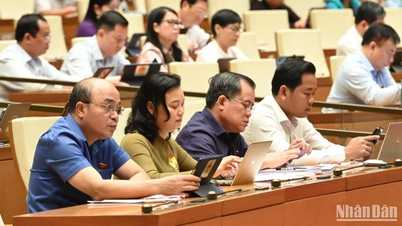






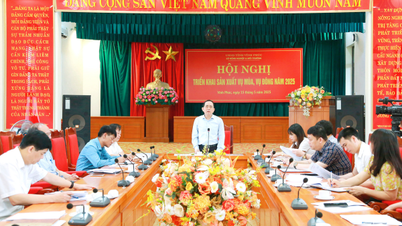













































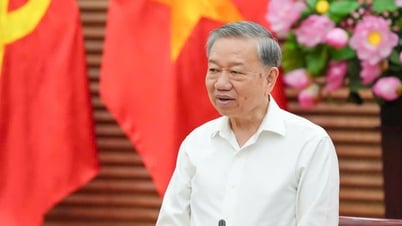

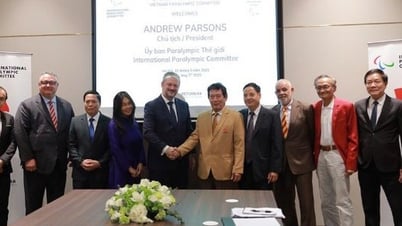
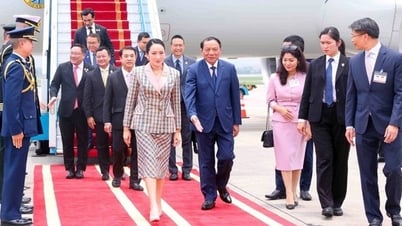

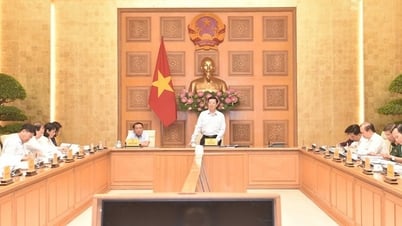









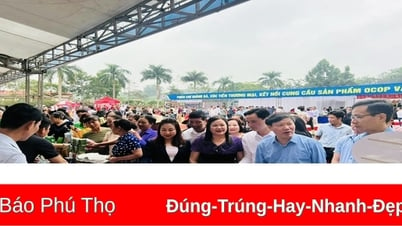



Comment (0)